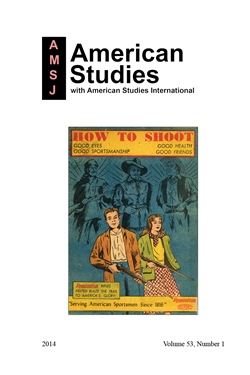Аннотация
A collaboration between three institutions—the National Rifle Association (NRA), the Boy Scouts of America (BSA), and the manufacturers of guns and ammunition—created in the early years of the twentieth century a set of youth programs aimed at domesticating and naturalizing rifle shooting as a wholesome sport for preadolescent and adolescent boys. The BSA, in particular, had to persuade urban and suburban parents and community leaders that target shooting encouraged physical fitness, mental alertness, self-control, self-reliance, and an appreciation of the role of rifles in securing and maintaining American freedoms. Using BSA merit badge pamphlets and other materials created by these three organizations from 1910 to the present, this essay charts the rhetoric used to persuade boys and adults that boys should be taught to shoot rifles. The early appeals (1910-1940) stressed the origins of rifle shooting in American history, especially the romantic history of the west, but in the 1950s the appeal shifted to the wholesome, family-oriented dimensions of the sport. The urban violence and anti-war sentiments of the 1960s and 1970s complicated the persuasive messages, but the need to remasculinize America in the 1980s gave the youth shooting movements new life. Increased mass shootings at colleges and schools in the 1990s to the present have made the BSA-NRA partnership increaingly difficult to negotiate rhetorically.
All items © Mid-America American Studies Association
Authors: If you prefer to remove your text(s) from this database please contact the editor.

